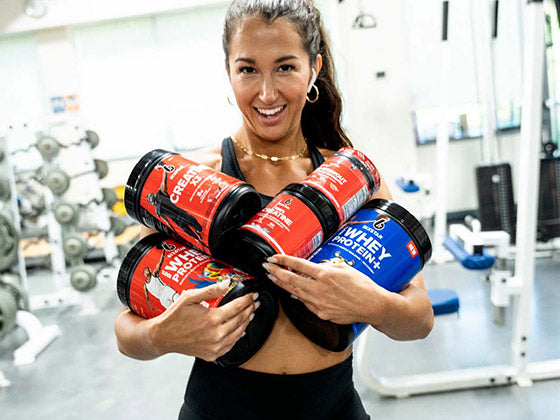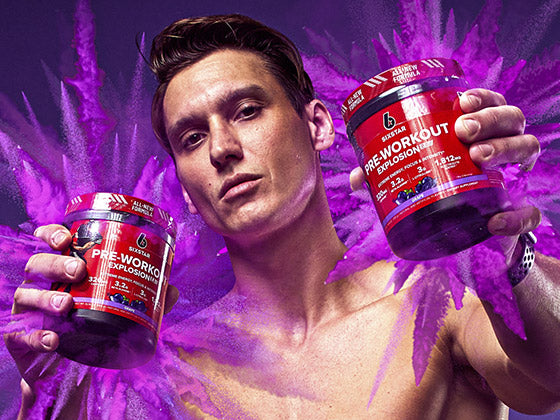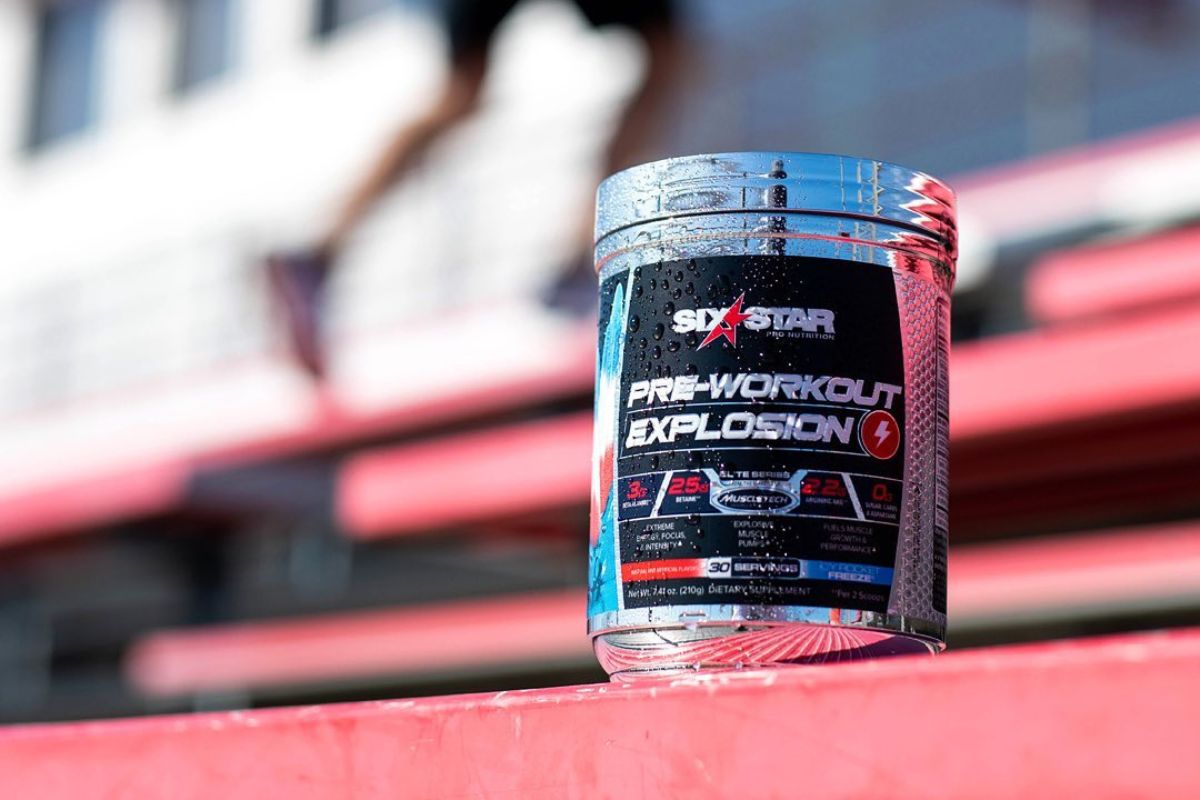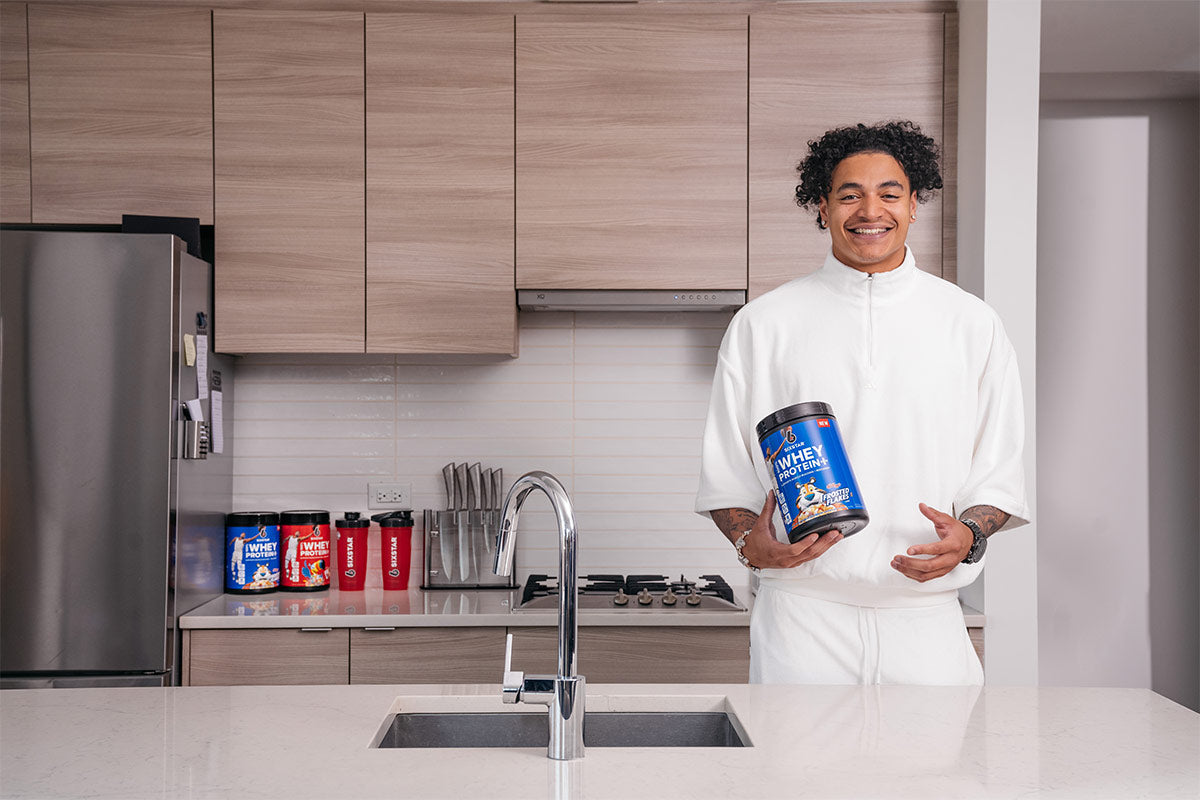Soccer is a demanding and strenuous sport that includes continuous running, sudden sprints, and intense physical exertion. If you're a soccer player, you already know that mastering the skills of the game, developing strategy, and building physical endurance are crucial parts of your performance. But, there's another overlooked part of the sport, and that's nutrition.
The importance of a proper diet for soccer players cannot be overstated. it's a key player in not just your performance on the pitch but also in how well you recover after the final whistle blows.
Imagine your body as a high-performance vehicle. Just as that vehicle needs the right type of fuel to run efficiently, your body needs the right mix of nutrients to perform at its best. High-intensity sports like soccer demand a lot from your body, including rapid bursts of speed, agility, strength, and endurance. All these require energy, and that energy comes from the foods you consume. In this blog, we will explore more about diet for soccer players so don’t miss out on anything and read till the end.
Must-Have Diet Nutrients for Soccer Players
Nutrition is not just about performance on the pitch. It's also about supporting your overall health and well-being, which will, in turn, positively affect your performance. Investing in good nutrition is investing in yourself as an athlete.
Macronutrients
Macronutrients are the nutrients your body needs in larger quantities which are proteins, carbohydrates, and fats.
1. Protein
Protein is essential for growth, repair, and the maintenance of good health. For soccer players, protein helps in repairing and rebuilding muscle that is broken down during training and games. Protein also supports immune function, which is essential for maintaining your health during the demanding soccer season. Examples of high-protein foods include lean meats, poultry, fish, eggs, legumes, and dairy products.
Check out SixStar range of protein supplements.
2. Carbohydrates
As a soccer player, carbohydrates are your primary fuel source. During intense training and matches, your body relies on carbs to keep your energy levels high. Consuming sufficient carbs ensures that you can perform at your best throughout the entire game and recover more quickly afterward. Foods rich in carbohydrates include fruits, vegetables, whole grains, and legumes.
3. Fats
While often misunderstood, fats are vital for health and performance. They provide a secondary energy source, support brain function, and help with the absorption of fat-soluble vitamins. Healthy sources of fats include avocados, nuts, seeds, fish, and olive oil.
Micronutrients
Micronutrients are nutrients your body needs in smaller quantities but are still vital for performance and health such as vitamins and minerals.
1. Vitamins
Certain vitamins, like B-complex vitamins, are essential for energy production and the repair and growth of cells. Vitamins A, C, and E act as antioxidants to reduce inflammation and support immune function. Vitamin D, on the other hand, helps with bone health, which is essential for soccer players to prevent injuries.
2. Minerals
Key minerals for soccer players include iron, which helps transport oxygen to the muscles; calcium and magnesium for bone health; and electrolytes like sodium and potassium for hydration and muscle function. Also, calcium is not just important for bones but also muscle contraction and nerve function.
Diet Plan for Soccer Players
Soccer is a sport that tests every facet of an athlete's capabilities, making it a truly exhilarating pursuit. To keep at your best during a game, it’s necessary to take the right nutrition.
1. Pre-Game Meal
The goal of a pre-game meal is to provide you with sustained energy and keep you hydrated. This meal should be high in complex carbohydrates, moderate in protein, and low in fat and fiber. Try to have this meal about 3-4 hours before the game to give the body time to digest. Some good choices for a pre-game meal can be:
- Grilled chicken breast
- A serving of brown rice or quinoa
- Steamed vegetables (e.g., broccoli, carrots)
- A banana or an apple for dessert
- Plenty of water
2. Halftime Snack
During halftime, the priority is to rapidly refuel and hydrate. Soccer players need fast-digesting carbohydrates and fluids to replenish energy stores and replace the fluids lost through sweat. Keep in mind that the stomach might not tolerate large quantities of food at this time, so your best choices are:
- A sports drink to replenish fluids and electrolytes
- A small banana or a handful of raisins for quick energy
- A granola bar or rice cakes for additional carbohydrates
3. Post-Game Meal
Post-game nutrition is to replenish glycogen stores, jumpstart muscle repair, and rehydrate the athlete. This meal should be consumed within 60 minutes after the game and should be high in carbohydrates and protein. Some suggestions for this are:
- Grilled salmon (or other oily fish, for omega-3 fats)
- Sweet potato or whole-grain pasta
- A side of colorful salad with a vinaigrette dressing
- Fresh mixed berries for dessert, high in antioxidants for muscle recovery
- Plenty of water or a sports drink if it was a particularly intense game
4. Recovery Meal
A recovery meal is essentially the next regular meal after the post-game meal, aiding continued recovery. It should still include a good balance of carbohydrates and protein, with a focus on nutrient density to provide the micronutrients needed for optimal recovery and performance. Opt for foods like:
- Quinoa salad with black beans, corn, avocado, and a lean protein source
- A side of steamed or roasted vegetables
- Greek yogurt with a drizzle of honey and some chopped nuts for dessert
- A tall glass of water or milk
Meal Planning Tips for Soccer Players
Meal planning is a crucial component of a soccer player's routine. It's not just about what you eat, but also when and how you eat. Here are practical tips to help you navigate through your meal plan.
1. Regular Meals and Snacks
Eating regularly is key to maintaining energy levels and aiding recovery. Try to have 3 balanced meals and 2-3 snacks each day, evenly spaced out. Never skip breakfast—it kickstarts your metabolism and refuels your body after a night's sleep.
2. The Plate Model
A simple yet effective approach to building balanced meals is the plate model. Aim for your plate to include a quarter of lean protein, a quarter of complex carbs, and half of fruits and vegetables. This ensures a good mix of macronutrients and micronutrients.
3. Pre-Training Meals
Your pre-training meal, consumed 2-3 hours before training or a game, should be rich in complex carbohydrates for sustained energy and moderate in protein. It should be low in fat and fiber to avoid gastrointestinal discomfort. A good example would be a turkey and cheese sandwich on whole grain bread, paired with a piece of fruit.
5. Hydration
Soccer players sweat a lot, and staying hydrated becomes necessary to keep moving. Water is usually enough for regular hydration, but sports drinks may be beneficial during long training sessions or games to replace electrolytes.
6. Meal Prep
Prepping meals and snacks in advance can help you stick to your nutrition plan, especially on busy days. This might involve cooking larger quantities of meals and freezing them in individual portions or preparing easy-to-grab snacks, like chopped fruits, hard-boiled eggs, or trail mix.
Supplements
Supplements are a great way to get a balanced amount of micro and macronutrients in a hectic schedule as a soccer player or athlete. Including supplements in your diet plan can help you get the extra energy you need to pull off a great game.
1. Protein Powder
Protein powders can be a convenient and efficient way to meet high protein requirements, especially for post-workout recovery. SIXSTAR 100% whey protein offers 60g of protein per two scoops which makes it a great choice for high protein requirement. You can stir, blend, or shake in a shaker cup with milk and water and have it before, after, or anytime during a game.
2. Creatine
Creatine can help improve strength and power output, which could benefit performance on the field. SIXSTAR’s creatine range with various flavors can help you run that extra mile on the field and also help with muscle recovery after the game.
3. BCAAs (Branched-Chain Amino Acids)
BCAAs (leucine, isoleucine, and valine) can help enhance muscle recovery and reduce muscle soreness after intense training. You can rely on the BCAAs+Speciality by SIXSTAR to recover quicker and faster after an intense match or a tough training session.
Hydration Needs
Hydration is of utmost importance for a soccer player due to the physical demands of the sport. Proper hydration results in a great performance, reduce the risk of heat-related illnesses and helps in post-match or post-training recovery.
1. Drink Water Throughout the Day
Hydration starts before stepping on the field so remember to drink water regularly throughout the day to stay well-hydrated before training or a match.
2. Pre-Hydration
About 2-4 hours before a game or training session, aim to consume 16-20 ounces of water. This helps ensure that you begin the game well-hydrated.
3. Hydration During the game
During soccer practice or a match, drink small amounts of water frequently to maintain fluid balance. A general guideline is to drink 7-10 ounces (about 200-300 milliliters) every 10-20 minutes.
5. Sports Drinks
For intense matches or training lasting longer than 60 minutes, sports drinks can be beneficial. They contain electrolytes like sodium and potassium, which help replace what is lost through sweat and aid in fluid absorption.
6. Post-Activity Rehydration
After a match or training session, it's essential to rehydrate. drink water or a sports drink to replace the fluids lost during the match. As a general rule, aim to consume 16-24 ounces (about 500-700 milliliters) of fluid for every pound lost during the game.
The Bottom Line
Soccer is a demanding sport that needs a unified blend of physical prowess, technical skills, and mental agility. It pushes players to their limits, requiring endurance to run for a full 90 minutes, speed for sudden sprints, strength for tackles, and agility for quick direction changes, therefore, along with the training it becomes important for soccer players to focus on the nutrition as well. As a soccer player, plan your meals, take a balanced diet, and focus on hydration to be on top of your game. Remember, with the right approach, you can become unbeatable.
Buy Sports Nutrition & Supplements from SixStar
Read Our Top Read Blogs:
- What is Bulking Season and when does it Start?
- How to Train Yourself to be Ambidextrous?
- The Ultimate Workout Program to be an All-Round Athlete
- Fitness & Diet for Offensive & Defensive Linemen
- When to Take to Take BCAA? Maximizing Your Workouts, Enhancing Your Health




